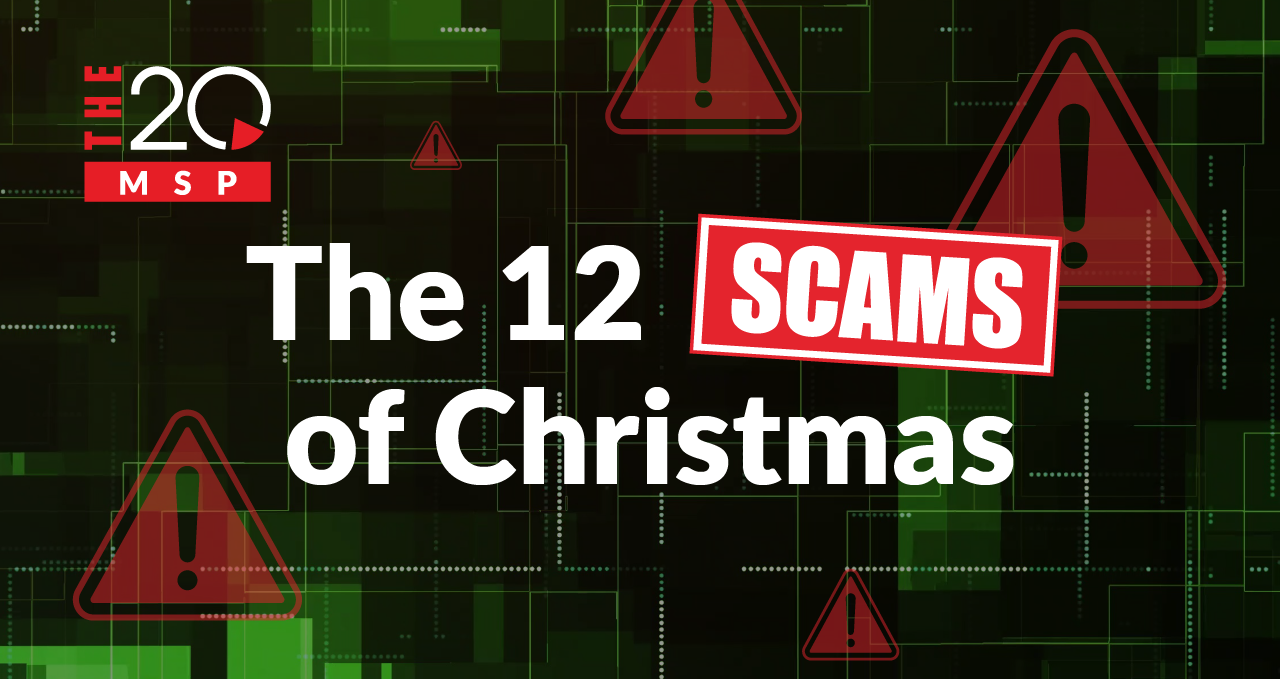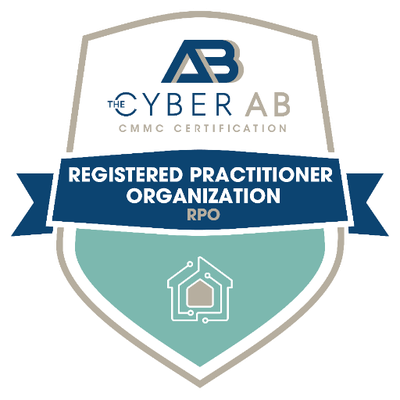
The 12 Scams of Christmas
The holidays – a season of joy, togetherness, and, unfortunately, cybercrime. These holly-jolly times are ripe with cybercriminals looking to exploit the rush of online shopping, holiday deals, and festive distractions. Last year, nearly 80% of Americans experienced at least one type of holiday scam, and this year, the numbers are expected to rise.
To help you stay scam-free, we’ve outlined 12 of the most common scams to watch out for this season. Let’s get right into it!
1. Phony Gift Cards
Nearly one in three Americans is targeted by gift card scams. Scammers trick victims into purchasing gift cards under the guise of a legitimate task, then disappear with the funds once the card is activated.
How to spot a gift card scam:
- Unusual payment: Legitimate businesses won’t require payment via gift cards.
- Fake bank alerts: Scammers may claim to be your bank and tell you to “protect” your funds by transferring them to a gift card.
- A sense of urgency: Requests with tight deadlines are a hallmark of scams and a classic social engineering tactic.
- Phone supervision: If someone insists you stay on the phone while buying a gift card, it’s almost certainly a scam.
2. Bad Holiday Apps
Holiday-themed apps might be fun for the family, but scammers often create malicious apps to spread malware or steal personal information.
How to avoid dangerous holiday apps:
- Check ratings and downloads: Skip poorly reviewed apps or those with few downloads.
- Read the privacy policy: Use tools like Apple’s Privacy Details to see what data the app collects.
- Verify the developer: Watch for typos or inconsistencies in the developer’s name, as scammers mimic legitimate companies with subtle errors to slip through app store filters.
3. Charity Scams
31% of annual charitable giving occurs in December. Unfortunately, scammers exploit this goodwill by creating fake charities or impersonating real ones to steal money and personal information.
How to spot a fake charity:
- Do your research: Verify charities using charity verification websites like Give.org, Charitywatch.org, or Charitynavigator.org.
- Double-check names: Fake charities often mimic legitimate ones but with slight spelling changes.
- Beware of pressure: Legitimate charities won’t rush or pressure you to donate.
- Avoid sharing unnecessary personal details: Scammers can steal personal information just as easily as money.
4. Package Delivery Scams
Hackers exploit the excitement of holiday shipments by sending fake emails or texts claiming to track your shipments, tricking victims into clicking malicious links or providing sensitive information.
How to avoid package delivery scams:
- Verify tracking notifications: Check your original purchase email to confirm if the tracking information is legitimate.
- Avoid unexpected links: Never click on links in unsolicited texts or emails.
- Be cautious with calls: If someone claims to represent a delivery service or retailer, don’t share sensitive information. Instead, hang up and call the company directly to confirm your shipment.
5. Amazon Purchasing Scams
As shoppers flock to Amazon during the holidays, scammers are taking advantage of the platform’s popularity. According to the Better Business Bureau, online purchase scams ranked as the 3rd riskiest scam in 2023. These scams involve fake sellers posing as legitimate Amazon retailers, offering unbelievably low prices, only to steal money or personal information.
How to avoid online purchase scams:
- Too good to be true: If the deal seems unrealistically cheap, it’s likely a scam.
- Check reviews: Verify a seller’s credibility by reading customer reviews and researching their reputation.
- Use a credit card: For added protection, opt for credit card payments instead of debit cards. Credit cards don’t immediately withdraw money directly from your bank account, giving you time to detect fraud and report it to your provider before your funds are lost.
6. Temporary Holiday Jobs
Employment scams ranked as the 2nd most common scam of 2023, according to the Better Business Bureau, with scammers targeting people seeking extra cash during the holidays, particularly in delivery services.
How to avoid holiday job scams:
- No upfront payments: Legitimate employers will never ask you to pay for supplies, apps, or training before getting hired. If you’re asked to pay, it’s a huge red flag.
- No interview or vague hiring process: Be cautious if the job is offered without an interview or sounds like an easy sign-up.
- Unrealistic wages: If the pay seems too good to be true, it likely is.
- Don’t start work before being hired: If you’re asked to complete a task before receiving an official job offer, request official documentation outlining your pay, working hours, and job details.
7. Christmas Catfishing
The holidays are the perfect time to cozy up with a loved one on cold winter nights. Sadly, many con artists exploit this time to manipulate emotional connections for monetary gain. Catfishing is the act of creating fake online personas to manipulate victims into forming emotional bonds only to later request money or personal information.
How to spot a Christmas catfish:
- Fast-track feelings: If someone expresses intense emotions too quickly, it could be a red flag.
- Lack of personal details: They’ll ask for your personal information while revealing little about themselves.
- Refuse video chats or meetups: Scammers will avoid video calls or in-person meetings. If they are always “too busy,” they’re likely hiding their identity.
- Requests for money: If they ask for money to solve a personal issue or emergency, it’s almost certainly a scam.
8. Imposter Websites
Imposter websites trick users into giving away money or personal information. They mimic legitimate retailers or services and can be difficult to tell apart from the real thing.
How to spot an imposter website:
- Check the URL: A misspelled or unusual website address is a sign of a fake site.
- Inspect the design: Fake sites may have poor design quality, such as typos, unpolished graphics, or excessive ads.
- Look for HTTPS: Most websites use HTTPS for secure connections. If the site uses HTTP instead, it’s a warning sign.
- Use website checkers: Tools like Google’s Safe Browsing can verify if a website is legitimate.
9. Travel Scams
Nearly half of Americans plan to travel during the holidays, with many on the lookout for great travel deals. Travel scams are common during this time, often following familiar patterns.
How to avoid travel scams:
- Shockingly low prices: Too good to be true? It’s likely a scam.
- Surprise charges: If you’re contacted and asked to pay extra for a flight, it’s likely a scam.
- Stick with reputable vendors: You should always purchase tickets directly from an airline or a reputable third-party seller.
10. Fake Toll Collection Texts
If you’re driving during the holidays, you may pass through tolls. But if you get a text claiming you owe a toll, don’t click the link right away – it could be a scam.
How to avoid fake toll collection scams:
- Verify with the agency: Go directly to the agency’s website to confirm your outstanding balance.
- Beware of unsolicited toll texts: Unexpected toll texts, especially from unknown numbers, are likely scams.
11. Grandparent Scams
This scam targets senior citizens by posing as a grandchild in trouble. According to the FBI these scams have cost victims upwards of $3 billion annually! And with the rise of AI and technologies like vishing (voice phishing), these scams are becoming harder to detect.
How to avoid grandparent scams:
- Verify the story: immediately contact the “victim” directly to confirm the situation.
- Trust your instincts: If the message sounds off, hang up.
- Create a family passcode: Establish a secret phrase or word known only to your to verify each other’s identity. If someone claiming to be a family member can’t provide the passcode, you’ll know they’re a scammer.
12. Pet Scams
The holidays are a popular time to welcome a new furry friend into the family, but 80% of sponsored pet ads may be fake, aimed at stealing your money and personal information.
- Meet in person: Never buy a pet without seeing it in person.
- Buy from reputable sources: Only purchase from trusted breeders or adoption centers.
- Do your research: Know the typical price of the pet you’re buying.
- Adopt from a shelter: Adopting from a shelter is a simple way to avoid a scammer while giving an animal in need a home.
Holiday Help
Worried you may have fallen for a holiday scam? Don’t panic. It’s important to act fast while staying calm and level-headed.
What to do next:
- Contact your credit card company and bank: immediately report any fraudulent purchases and freeze your accounts.
- Change your passwords: Secure all your accounts by updating your passwords, especially for banking and shopping sites.
- Report identity theft: If your Social Security number has been compromised, visit IdentityTheft.gov to report it.
If you feel you need some extra protection, consider reaching out to us. With over thirty years in the IT industry, we’ve been keeping our clients safe from scammers and con artists. Don’t let the scammers ruin your holidays. Reach out today.
About The 20 MSP
As a leading provider of managed IT services, The 20 MSP serves thousands of businesses nationwide, providing each one with white-glove service, secure and streamlined IT infrastructure, and 24/7/365 support. We believe in building lasting relationships with clients founded on trust, communication, and the delivery of high-value services for a fair and predictable price. Our clients’ success is our success, and we are committed to helping each and every organization we serve leverage technology to secure a competitive advantage and achieve new growth. To learn more, visit the20msp.com.



